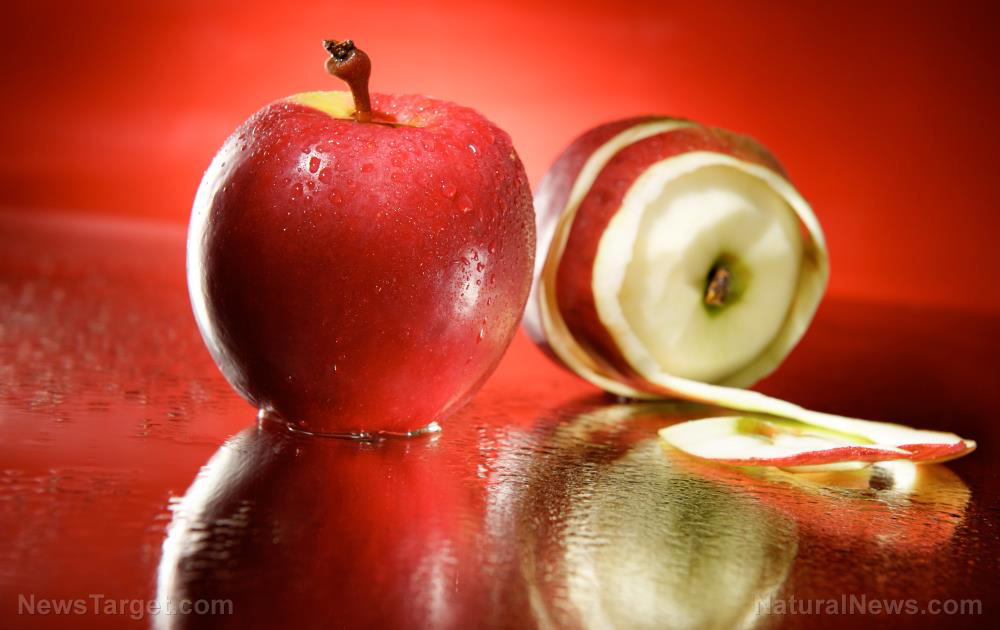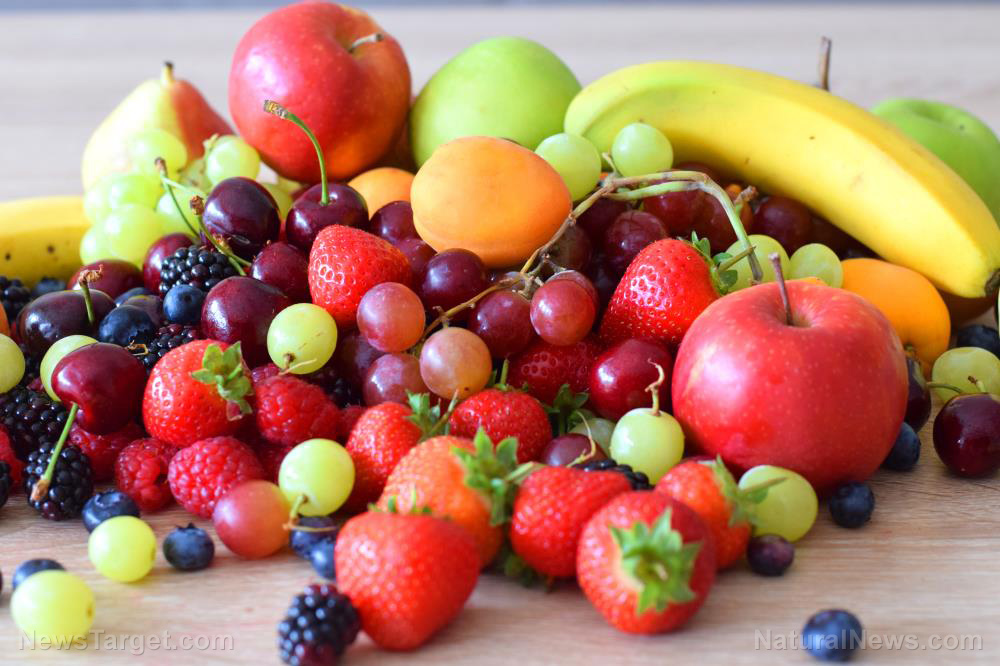Antioxidant-rich organic apple peels possess potent anti-cancer benefits
03/12/2019 / By Tracey Watson

Cancer patients who do not want to follow the conventional treatment path – which usually includes surgery, chemotherapy, radiation or a combination of all three – have been known to embrace a variety of costly and sometimes even bizarre treatments to fight their disease.
For those who have received a cancer diagnosis, the variety of complementary treatments available may be overwhelming and confusing. There are, however, some truly simple and affordable natural treatments that have a proven track record of both preventing and treating several types of cancer.
One of these is the humble apple peel.
An apple peel a day …
Several studies conducted over the past few years have confirmed the amazing abilities of apple peels to keep cancer at bay, in addition to other amazing health benefits. (Related: Compound in apple peels found to prevent muscle wasting from aging and illness.)
For example, a study published in the Journal of Agricultural and Food Chemistry back in 2003, found that the “high content of phenolic compounds, antioxidant activity, and antiproliferative activity of apple peels” can destroy cancer cells. The peels from Rome Beauty apples, in particular, were able to inhibit cancer cells from multiplying by a whopping 50 percent, even at low concentrations.
As reported by Science Daily, another study, conducted by researchers from Cornell University and also published in the Journal of Agricultural and Food Chemistry, identified 12 compounds in apple peels known as triterpenoids, which successfully inhibited the proliferation of or completely destroyed cancer cells.
“We found that several compounds have potent anti-proliferative activities against human liver, colon and breast cancer cells and may be partially responsible for the anti-cancer activities of whole apples,” explained Rui Hai Liu, the study’s senior author and an associate professor at Cornell at the time. (Related: Apple peels contain twelve anti-cancer compounds called “triterpenoids.”)
Previous Cornell studies had already confirmed the ability of apple peels to fight cancer cells and reduce the number and size of tumors in laboratory animals.
While each type of apple used in the study contained different triterpenoid compounds, the study’s authors noted that all exhibited “very potent anti-cancer activities.”
Studies into the link between apple peels and cancer have mostly confirmed positive results in the fight against breast and prostate cancers, two of the most common cancers in the United States. More recent studies have also confirmed its ability to fight other types of cancer, including liver, colon and lung cancer.
In the Nurses Health Study and the Health Professionals Follow-up Study, the regular consumption of fruit and vegetable [sic] was linked to a noteworthy 21 percent reduction in lung cancer risk in women. Upon further examination, it was found that apples alone stood out as having significant effect when consumed individually.
A recent Finnish study reveals similar results. A sample population of 10,000 men and women clearly showed a strong relationship between higher intake of flavonoids and lower growth of lung cancer. And, coming as no surprise, the primary source of flavonoids among research participants were apples.
It was concluded, therefore, that flavonoids from apples were most likely responsible for the lowered cancer risk.
Beware of pesticides
Of course, consuming loads of extra apples will only be beneficial to your family’s health if those apples aren’t coated in toxic, cancer-causing pesticides and herbicides.
It is therefore worth sourcing non-GMO, organic apples from a local farmer or market. Another option is to add organic apple peel powder to your smoothies in the morning. Or, if you’re willing to be patient, planting your own apple tree will mean you’ll be rewarded with fresh, cancer-fighting fruit within three or four years.
Just don’t discard the peel, where most of this humble fruit’s cancer-beating abilities lie.
Learn more at Nutrients.news.
Sources include:
Tagged Under: an apple a day, anticancer, apoptosis, apple peel, apple peel powder, apples, cancer, cancer treatment, food cures, food is medicine, food science, fruits, grocery cures, natural medicine, nutrients, prevention, research, supplements




















